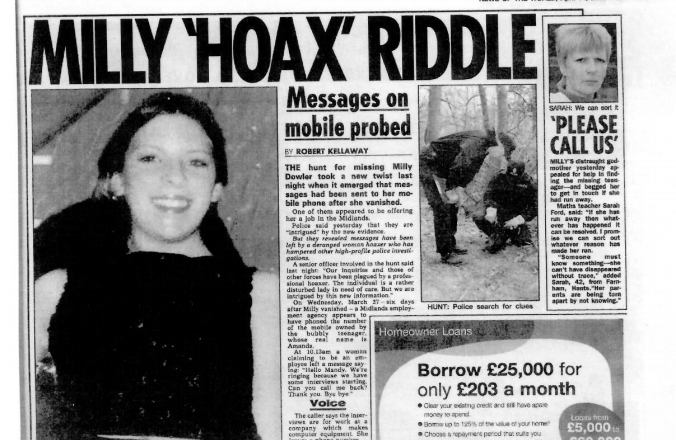
If Surrey Police had acted on knowledge of phone-hacking at the News of the World in 2002, the paper would probably still be in print today.
It would have lanced the boil of corruption before the hacking scandal was allowed by News International to spiral out of control over the following decade.
It also would have stopped many more subsequent victims of phone-hacking from being targeted by the tabloid and saved the Dowler family a good deal of added anguish.
The force’s explanation for its inaction in this week’s Operation Baronet report is understandable. The focus at the time was on finding a missing 13-year-old.
The News of the World had come forward to the police and shared the details of information gained from its illegal activities. Like journalists, the police have a duty to their sources.
But it is strange that nothing whatsoever was done about the illegal voicemail interception. One would have thought that the police should at least have issued a discreet warning, or raised the issue with News International management.
No explanation is given for why nothing happened and it appears merely to be an oversight.
So this is a story of incompetence on the one hand, by the police, and of journalists who were prepared to ride roughshod over a police inquiry in pursuit of a story (and of course the missing girl).
Milly went missing on 21 March 2002 and Surrey Police obtained a court order to view her telecoms records on 26 March.
The message on her mobile from Mondays recruitment agency about a job in Telford (which turned out to be a red herring) was left on 27 March.
The News of the World started making extensive enquiries in Telford on 12 April. Surrey Police did not access the relevant message themselves until five days later (three weeks after it was left).
The Operation Baronet report reveals that News of the World chief reporter Neville Thurlbeck said he accessed Milly’s messages using her personal identification number.
The tabloid had apparently been making inquiries amongst her school friends.
The News of the World made Surrey Police aware of the voicemails on Saturday, 13 April 2002, hours before that week’s edition went to press.
The report also sheds a little more light on the modus operandi of the News of the World and helps explain why police are so cautious about working with journalists today:
- News of the World reporters investigating the Telford connection claimed they were working with the police (they weren’t)
- One reporter apparently called up the recruitment agency pretending to be Milly’s mother
- A blagger, presumably working for the News of the World, obtained confidential information about the Dowlers’ call records by phoning up BT
- When the News of the World went to press with the first edition story about the Milly Dowler voicemail on 13 April 2002 it included a quote from Surrey Police which the force says was made up
- The Sun and News of the World persisted in offering a £100,000 award for information about Milly’s whereabouts even though the police rejected the offer fearing it would lead to them being swamped with false leads.
It is worth also remembering that Levi Bellfield was finally convicted of Milly Dowler’s murder in 2011 thanks partly to the actions of a tabloid journalist, David Collins, (who then worked for the Daily Mirror).
He tricked Bellfield into revealing key details which placed him at the crime scene on the day Milly disappeared and helped police build a case against him and secure his conviction.
It is the one silver lining in an otherwise unedifying episode for both the police and journalism.
Email pged@pressgazette.co.uk to point out mistakes, provide story tips or send in a letter for publication on our "Letters Page" blog
